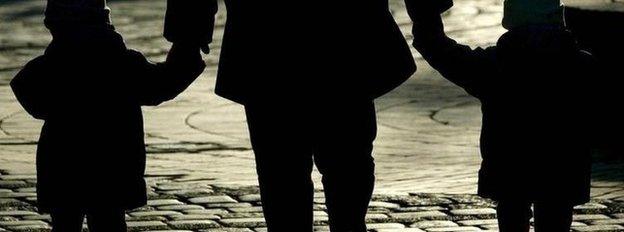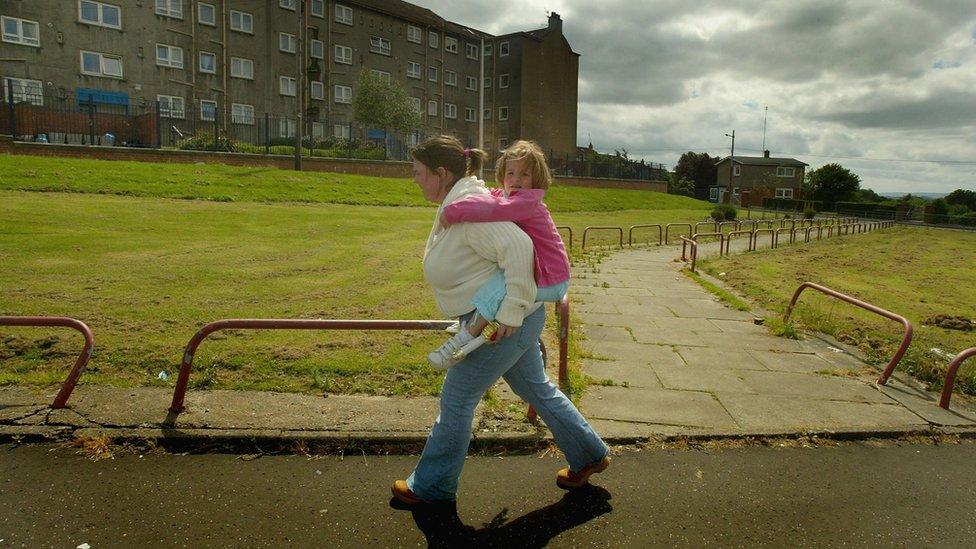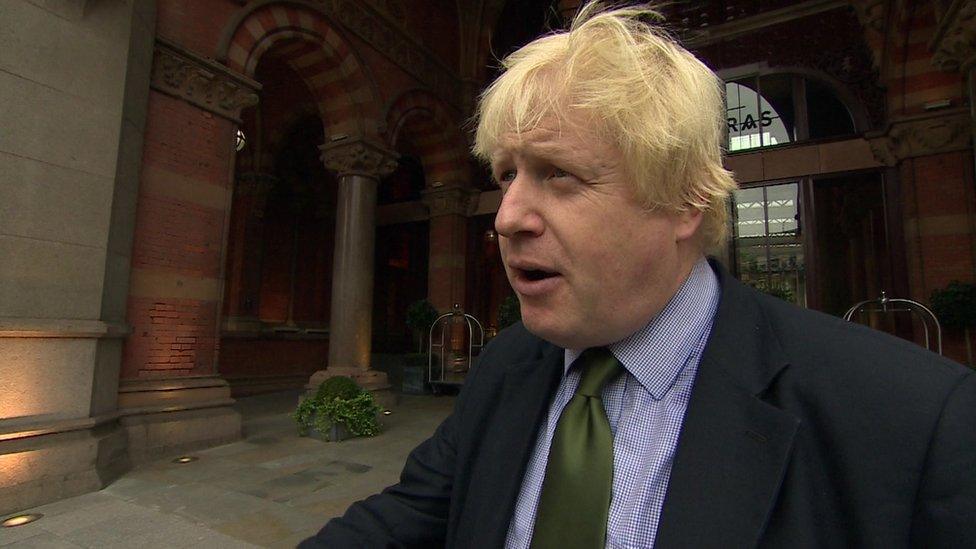MP Heidi Allen warns tax credit cuts 'betray' Tory values
- Published
Conservative MP Heidi Allen: "I became an MP to stand up for the vulnerable"
A Tory MP has said her party risks betraying its values as she voiced her opposition to tax credit cuts.
Heidi Allen suggested ministers were losing sight of the difficulties of working people in their "single-minded determination to achieve a surplus".
Urging help for affected families, she said "true Conservatives had compassion running through their veins".
The government is standing by the changes, saying these and other reforms will save taxpayers £15bn a year.
Follow rolling updates on the tax credit row and other political development: BBC Politics Live
From April, the threshold at which tax credits begin to be withdrawn will fall from £6,420 to £3,850, and people's credit entitlement over this amount will be reduced more steeply.
Millions of people are due to learn how much money they will lose in letters received shortly before Christmas.
The government says people's incomes will be protected by other measures, including the new National Living Wage, increased free childcare and a larger personal income tax allowance.
'Not a spreadsheet'
But a growing number of Tory MPs say they are not satisfied with this and want "transitional" arrangements to be put in place to help those affected.
In her maiden speech in the Commons during a Labour debate on tax credits, Ms Allen, the MP for South Cambridgeshire, said she supported the principle of reducing reliance on the state but feared the way the government was going about it was all wrong.

Background

Tax credits are income supplements for people on low incomes
Currently those working a minimum of 16 hours a week can claim Working Tax Credit, while parents can also claim Child Tax Credits
The amount received is affected by how many hours someone works, their salary and how many children they have
July's Budget set out savings of £4.5bn to the tax credits bill
Changes to the thresholds come into force in April
In 2017, any family which has a third or subsequent child born after April 2017 will not qualify for more Child Tax Credit

Ms Allen, who backed the changes when they were first voted on last month, said her party must not treat it as "a spreadsheet exercise" since many of those affected would not be able to cope and faced a stark choice between heating their homes and putting food on their tables.
"It is right that people are encouraged to strive for self-reliance and find work that pays for their independence from the state but I worry that our single-minded determination to reach a budget surplus is betraying who were are," she said.
"Today every Conservative member who knows who we really are has a duty to remind those who have forgotten. We are the party of the working person... who strives to provide for themselves and their family with pride."
The government, she said, had a responsibility "to support the people through that change", adding: "I am not interested in the colour of the party that created a bloated welfare state. That is in the past but I do know one thing - it is not the fault of the recipients of tax credits.
"To pull ourselves out of debt, we should not be forcing those working families into it."
'Something, anything'
Labour urged Tory MPs to back its motion calling for a rethink, but was defeated by 317 votes to 295, with no Conservatives voting against the government.
However, several MPs used the occasion to increase the pressure on the government to rethink how they are introduced.
Conservative Johnny Mercer urged the chancellor to do "something, anything" to ease the "harshest" effects of the cuts on vulnerable people.
"My duty, and indeed our duty is to shout for the most vulnerable," he said.
"Those who through no fault of their own find themselves on the fringes of society, those who through a bit of bad luck, a couple of wrong decisions can be any one of us."
Labour has accused the Conservatives of deceiving the public after ministers made repeated statements during the election campaign insisting that tax credits were not going to fall in value.
As pressure mounts on the government, cross-bench peer Baroness Meacher is tabling a so-called "fatal motion" for next Monday in an attempt to kill off the changes in the House of Lords, where the government does not have a majority.
The Lords cannot interfere in the government's Finance Bill but the tax credit cuts are contained in a separate piece of legislation and the Huffington Post , externalreported that should they be blocked, it could prompt calls for peers' powers to be curbed and even for the Lords to be "suspended".
The BBC's John Pienaar said Liberal Democrats in the House of Lords will be formally instructed to vote down the government's plans, despite fears among senior peers that a veto could provoke a government backlash, and even constitutional retaliation against the unelected chamber.
The Institute for Fiscal Studies has said those on lower incomes will be more affected by the cutbacks than any welfare change since 2010 but its director Paul Johnson told Today that, even so, the tax credit system would remain "far more generous" than it was in 1997.
- Published24 November 2015

- Published19 October 2015

- Published5 October 2015
